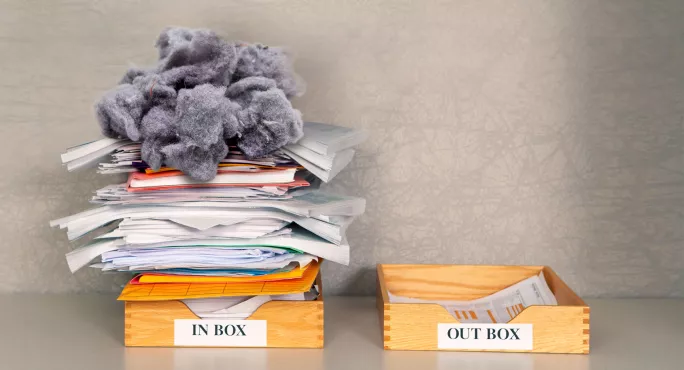Want happier teachers? Get rid of the fluff

When the government announced in July that it was agreeing to a 6.5 per cent pay rise for teachers, it also revealed plans to form a new teacher workload reduction taskforce, due to report in 2024.
This is not the first such initiative. The last workload taskforce reported in 2017, with the findings helpfully summarised on a poster. The idea for the 2017 poster had been copied from the previous teacher workload taskforce, which reported in 2003.
Despite all of this, hard data shows that the number of hours worked by teachers has changed little over the past 30 years.
Tackling teacher workload
If, then, the “answer” is to launch a third workload reduction taskforce in 20 years, perhaps we should pause to consider whether we are asking the right question.
Maybe the question should simply be “what is workload?” Back in 2018, around the time of the second workload taskforce, I remember reading research, based on teacher questionnaires and interviews, which suggested that workload was a major factor in teachers leaving the profession.
So we put this to the test: we linked survey data on the hours worked by individual teachers to government records on who actually left teaching the following year.
- Teacher workload: Workload is unmanageable, say most school staff
- Wellbeing: Five micro-gains to cut your teacher workload
- Teachers leaving: Exodus shows workload, pay and flexibility must be fixed
Our research team found zero correlation between the number of hours worked by full-time teachers and whether or not they quit the profession. None.
Later that year, I read a tweet by the pseudonymous teacher-blogger Solomon Kingsnorth, in which he suggested that it was not his workload he objected to - he loved much of the work he did and knew it made a difference.
What he did object to, though, were all the things on his to-do list that didn’t make a difference, which he dubbed “fluffload”.
It made me wonder whether we had been measuring workload correctly; should we have been measuring fluffload instead? So I decided to develop Kingsnorth’s 140 characters of insight into a 12,000-word academic paper, developing a new questionnaire to measure teachers’ fluffload.
We then got 1,300 teachers to fill it in and also asked them, “During this last term, have you seriously considered leaving teaching altogether?”
Lo and behold, we found Kingsnorth was right. Our measure of fluffload now emerged as a strong predictor of the intention to quit. Indeed, fluffload was more closely tied to that intention than quality of leadership, the collegiality of staff or standards of behaviour in teachers’ schools.
What exactly is ‘fluffload’?
To get at Kingsnorth’s “tasks that don’t make a difference”, we used questionnaire items such as, “I am expected to do tasks which do not contribute to pupils’ education”, “I am expected to do things solely for the purpose of generating evidence”, and “requirements around lesson planning get in the way of teaching”.
This was the issue for many teachers - not the number of hours worked but the tasks they were asked to do during those hours.
Of course, measuring unnecessary work isn’t that straightforward: we recorded teacher perceptions, and it’s perfectly possible that some tasks perceived as fluff are actually necessary to improve children’s outcomes. But here’s the rub: research suggests that if teachers don’t feel a sense of alignment with the tasks they are being asked to do, they will think harder about leaving.
What’s more, recent survey data suggests that “fluffload” remains a big problem, with two-thirds of teachers reporting that they spend over half of their working time on tasks other than teaching.
So what’s the answer? I would suggest that if teachers are getting frustrated by tasks they are being asked to do, leaders should consider two possible scenarios.
Either the task is educationally useful but the teacher doesn’t recognise the value of what they are being asked to do. Or the task genuinely isn’t enabling them to help their pupils, and should be deprioritised, reduced or, ideally, removed.
From this leaders have two options: explain or refrain. Can I clearly explain the direct line between this task and changing children’s lives? If not, maybe we need to reconsider whether it’s the right thing to ask teachers to be doing.
I hope the new taskforce recognises the negative impact of fluffload and finds ways to remove it wherever possible.
Dr Sam Sims is senior research scientist at Ambition Institute
You need a Tes subscription to read this article
Subscribe now to read this article and get other subscriber-only content:
- Unlimited access to all Tes magazine content
- Exclusive subscriber-only stories
- Award-winning email newsletters
Already a subscriber? Log in
You need a subscription to read this article
Subscribe now to read this article and get other subscriber-only content, including:
- Unlimited access to all Tes magazine content
- Exclusive subscriber-only stories
- Award-winning email newsletters
topics in this article



